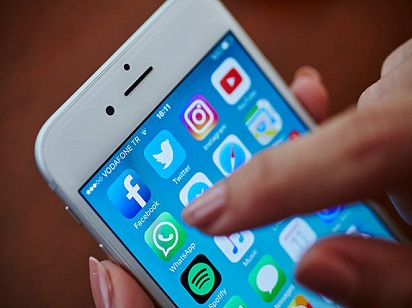In a world where technology evolves rapidly, it’s inevitable that older devices eventually fall out of the loop. WhatsApp, the popular messaging app owned by Meta (formerly Facebook), is no exception. Recently, WhatsApp announced that it will end support for 49 smartphone models starting December 31, 2024. This move affects devices that run on older operating systems, primarily Android 4.1 (Jelly Bean) and earlier, and iOS 12 and earlier. Here’s a detailed look into why this decision was made, which devices are affected, and what users can do to stay connected.
Why is WhatsApp Ending Support?
Technological Advancements
One of the primary reasons for ending support on older devices is technological advancement. As WhatsApp continues to introduce new features and enhancements, older operating systems often lack the capabilities required to support these updates. Maintaining support for outdated software can hinder the app’s performance and security.
Security Concerns
Security is a critical concern for messaging apps. Older operating systems are more susceptible to vulnerabilities and do not receive regular security updates. By discontinuing support for these devices, WhatsApp can ensure a safer environment for its users, focusing resources on newer, more secure platforms.
Resource Allocation
Supporting outdated devices consumes valuable resources that could be better utilized in developing new features and improving the user experience on more modern devices. This strategic decision allows WhatsApp to allocate resources more efficiently, ensuring that the majority of its user base enjoys a seamless and enhanced messaging experience.
Which Devices are Affected?
Here’s a comprehensive list of the devices that will no longer be supported by WhatsApp:
Apple
- iPhone 5
- iPhone 5c
Samsung
- Galaxy S2
- Galaxy S3 mini
- Galaxy Trend Lite
- Galaxy Core
- Galaxy Xcover 2
- Galaxy Ace 2
LG
- Lucid 2
- Optimus F7
- Optimus F5
- Optimus L3 II Dual
- Optimus L5
- Optimus L5 II
- Optimus L7
- Optimus L7 II Dual
- Optimus L7 II
- Optimus F6
- Optimus Enact
- Optimus L4 II Dual
- Optimus F3
- Optimus L4 II
- Optimus L2 II
- Optimus Nitro HD
Huawei
- Ascend G740
- Ascend Mate
- Ascend D Quad XL
- Ascend D1 Quad XL
- Ascend P1 S
- Ascend D2
Sony
- Xperia Arc S
- Xperia Miro
- Xperia Neo L
ZTE
- Grand S Flex
- Grand X Quad V987
- Memo V956
HTC
- Desire 500
Other Brands
- Archos 53 Platinum
- Lenovo A820
- Wiko Cink Five
- Wiko Darknight
- Alcatel One Touch Evo 7
- Caterpillar Cat B15
- UMi X2
- Faea F1
- THL W8
What Does This Mean for Users?
For users with devices on this list, WhatsApp will no longer be available after December 31, 2024. This means no more updates, and over time, the app will cease to function correctly. Users will receive notifications from WhatsApp alerting them about the impending discontinuation.
How to Stay Connected?
Upgrade Your Device
The most straightforward solution is to upgrade to a newer device that supports the latest versions of Android or iOS. Investing in a new smartphone will ensure you can continue using WhatsApp and benefit from its latest features and security updates.
Update Your Operating System
For some users, updating the device’s operating system might be a viable option. If your device supports a higher version of Android or iOS, updating the OS can extend the usability of WhatsApp on your current device. However, this might not be possible for all devices, especially those with hardware limitations.
Alternatives to WhatsApp
While upgrading or updating is the recommended solution, users who are unable to do so might consider alternative messaging apps that still support older devices. Some popular alternatives include:
Signal
Signal is a highly secure messaging app that supports a range of older devices. It offers end-to-end encryption and features similar to WhatsApp.
Telegram
Telegram is another popular messaging app that is known for its speed and security. It supports a wide range of devices and offers cloud-based messaging.
Facebook Messenger
For those already integrated into the Facebook ecosystem, Messenger can be a convenient alternative. It supports various devices and provides a robust messaging experience.
Conclusion
The decision by WhatsApp to end support for 49 older devices marks a significant shift towards embracing newer technologies and enhancing user security. While it may be inconvenient for some users, this move ensures that WhatsApp remains a reliable and secure messaging platform. For affected users, upgrading to a newer device or exploring alternative messaging apps will be essential to stay connected in the digital age. As technology continues to evolve, staying updated with the latest advancements is crucial for a seamless and secure communication experience.
